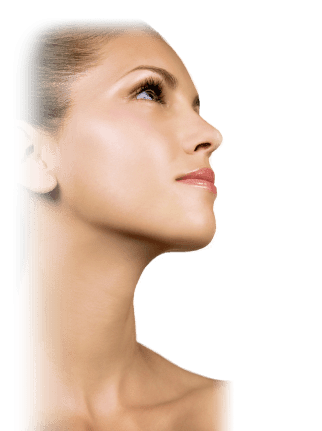Nose Surgery
Get the nose you always wanted, sculpted by world class surgeons
Your Nose Surgery Package Includes:
- Hospital Stay In A Single Private Room + Theatre + Pathology
- Australian Client Manager
- Surgery + Plastic Reconstructive Surgeon + Anaesthetist + Nursing Fees + Hospital Fees
- Bandages, Dressings + Prescribed Medications for 7 Days
- Pre + Post Operative Consultations with Our Surgeon
- Zoom Calls + Photo Checkups with Surgeon for 12 months
- Airport, Hotel and Hospital Transfers Included

- Open Rhinoplasty + Septoplasty
- Tipoplasty + Osteotomy
- Rhinoplasty Including Rib Cartilage
”What an amazing expereince! From my initial inquiry to now two weeks post surgery. It has been a joyful expereince
MelRhinoplasty
What is Rhinoplasty?
Rhinoplasty is surgery to reshape the nose. It can make the nose larger or smaller, change the angle of the nose in relation to the upper lip, alter the tip of the nose or correct bumps, indentations, or other defects in the nose.
Rhinoplasty surgery can change:
-
Nose size in relation to facial balance
-
Nose width at the bridge or in the size and position of the nostrils
-
Nose profile with visible humps or depressions on the bridge
-
Nasal tip that is enlarged or bulbous, drooping, upturned or hooked
-
Nostrils that are large, wide, or upturned
-
Nasal asymmetry
Am I Good Candidate
One or more of the following feelings or conditions may indicate that you are a good candidate for Rhinoplasty:
-
Your nose is too large or too small
-
Your nose does not seem to fit with the rest of your face
-
Your nose is crooked, badly shaped, or out of alignment
-
You have nasal blockage inside your nose and have trouble breathing
-
You have a birth defect that you would like improved
-
You would like improvement, not perfection, in the appearance of your nose
If you are in good general health, have a positive attitude and realistic expectations, you are most likely a good candidate for this procedure.
If you are unsure about what you will need, please click below and our surgeons can give you a FREE assessment
Procedure Details
There are two main incision approaches: the open approach and the internal (endonasal) approach.
In addition to incision options, there are various methods for augmenting your nose or smoothing surface deformities.
Autologous cartilage grafts taken from your nasal septum (the wall inside the nose that divides one air passage from the other) offers the best chance for a natural result. If cartilage and bone have already been removed from the nasal septum, then ear or rib cartilage and sometimes bone from the skull are other options.
Although solid silicone implants are available for nasal surgery, these are foreign materials that may become infected or react poorly with your nasal tissues and have to be removed. That is why natural cartilage, if a supply is available, is the most trouble-free option.
What will my nose surgery incisions and scars be like?
As previously mentioned, there are two general techniques for making the incisions.
Open rhinoplasty
For an open rhinoplasty, the incisions are made outside the nose with a small access incision on the underside of the nose between the nostrils that then connects with other incisions hidden inside the nose.
Advocates for the open rhinoplasty approach say that it fully opens the nose, providing better visualization of the nasal structures and a more direct route for surgical manipulation; the small scar at the base of the nose is barely visible once it heals.
Endonasal rhinoplasty
For an endonasal rhinoplasty, the incisions are made inside the nasal passages. Because these incisions are hidden, they are invisible after surgery.
Advocates for the endonasal approach say that it permits more limited dissection of nasal tissues, offers excellent visualization of nasal structures, and eliminates the visible scar at the base of the nose.
Your Recovery + After Care
Your surgeon will discuss how long it will be before you can return to your normal level of activity and work. After surgery, you and your caregiver will receive detailed instructions about your postoperative care, including information about:
- Drains, if they have been placed
- Normal symptoms you will experience
- Potential signs of complication.
Immediately after rhinoplasty
After surgery you may be asked to wear a nasal splint over your nose for support. The splint will protect your nose while you sleep and shield it from accidental bumps. You may also have a small triangular bandage beneath the tip of your nose. Nasal packing will be placed inside your nose for additional support; it acts as an internal splint to hold everything in place and to keep the airway clean and free of crusts. Many patients dislike the idea of anything being put in their noses, so adjusting to the nasal packing may be difficult. Some surgeons insert a small tube in each airway to allow the patient to breathe more freely when the packing is in place. Expect some swelling and bruising and possibly some discomfort. Your face will be puffy, and the areas around your nose and eyes will be bruised and swollen after surgery. Your surgeon may recommend cold compresses to help minimize the swelling and reduce pain. You may need to keep your head elevated and relatively still for the first few days after surgery. Your doctor may prescribe a pain medication to deal with any pain you may experience. You will have to limit your activities for a few days to weeks.
Recovery time frame after rhinoplasty
It is vitally important that you follow all patient care instructions provided by your surgeon. Your surgeon will also provide detailed instructions about the normal symptoms you will experience and any potential signs of complications. It is important to realize that the amount of time it takes for recovery varies greatly among individuals. You will need to wait for several weeks before you can engage in exercise or athletics.
The first two weeks
All surgical packing within your nose will be removed within four to seven days after surgery. The splint and bandages on your nose will be removed in a week to ten days. It takes about ten to fourteen days before most of the swelling and bruising improves. Your return to work or school depends on how much exertion your job or your school activities require. Most normal activities including exercise can usually be resumed within three weeks. You should avoid strenuous exercise, straining, bending, and lifting until cleared to do so by your plastic surgeon.
After the first two weeks
Minor swelling of your nose may persist for up to a year but most likely will not be noticeable to others. It will be a few months before you can expose your reshaped nose to direct sunlight, and it may be a number of weeks before you can wear glasses without special support, such as tape, if the bones in your nose were altered.
Client Testimonials
Types of Nose Procedures
Whatever look you are after, our surgeons can work with you to help you achieve the goals that you have been looking for
Nose Procedures
Open Rhinoplasty & Septoplasty & Tipoplasty & Osteotomy
The following are general indications only of the various types of procedures we offer for the nose area
- In Open Rhinoplasty, incisions are made outside the nose.
- Advocates for the open rhinoplasty approach say that it fully opens the nose, providing better visualization of the nasal structures and a more direct route for surgical manipulation;
- In Endonasal Rhinoplasty, incisions are made inside the nasal passage
- Advocates for the endonasal approach say that it permits more limited dissection of nasal tissues, offers excellent visualization of nasal structures
Rhinoplasty
Rhinoplasty Including Rib Cartilage
Rib Cartilage used for nose surgery has a strong safety record, is widely used and is preferred due to the strength and versatility of the material
- This is in addition to Open Rhinoplasty procedures
- Adding rib cartilage allows the surgeon to transform a wide nostril shape into a narrow oval shaped nostril
- Rib cartilage is chosen due to it’s excellent strength properties
- Rib cartilage allows for nasal lengthening of a short nose with enough tip to project a strong nasal framework
What To Expect?
Once you have submitted your surgery medical form and photos – our team will arrange a free assessment, and outline all the details you will need to know about the Surgery Price, Length of Stay in Bangkok, Hotel, Transfers, and much more.
Payment Plans
Don’t have all the funds ready for your surgery or dental trip? Medi Makeovers have partnered with Australia’s leading financial service to offer our clients finance for all aspects of their medical holiday – even spending money.
TLC Credit Benefits
TLC provides a payment plan solution to suit your lifestyle and has been designed to cover all medical, cosmetic and lifestyle needs as well as your associated costs.
- Payment plans up to $50,000 – including treatment / flights & accommodation
- No stress – the whole process is managed privately by our Consultants
- Flexible options – any additional repayments can be added back on to the payment plan at no extra charge
- Fast efficient approvals, simply apply online
TLC offers a simple and personal solution to customers, where they personalise the experience to suit customer expectations and desires to ensure a smooth transaction. Finance can be arranged to cover not only the cost of overseas procedures, but also all associated travel costs including spending money.

Five Star Recovery
Bangkok is the perfect destination for your surgery and/or dental trip as most attractions, shopping malls and transportation are air conditioned and away from the warm climate of Thailand. This is particularly important for your post-op recovery after surgery. Our hotels are located in the best parts of town, away from the nightlife – yet close to all major shopping centres (you can walk to them!), massages, hair salons and beauty salons so you can have the best possible recovery and indulge a little!


